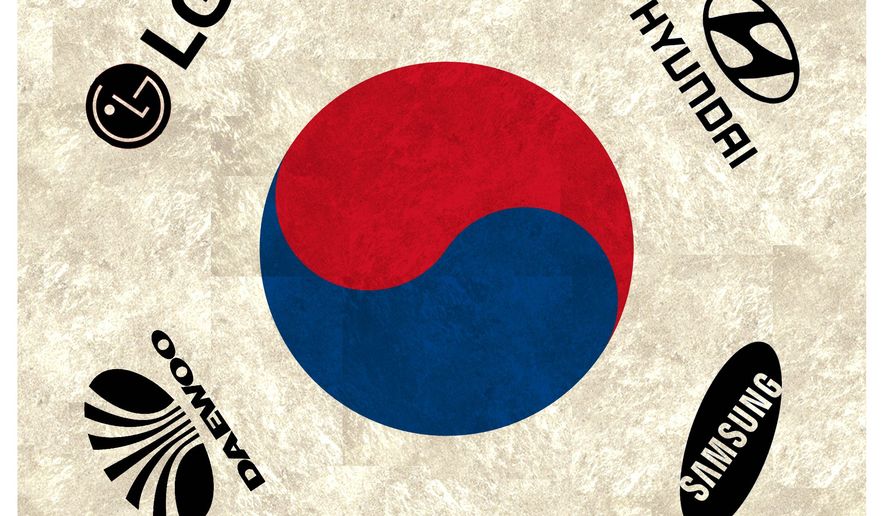OPINION:
It was only a month ago that the Pentagon’s Defense Intelligence Agency said North Korea could have a “reliable, nuclear-capable ICBM” program as soon as 2018. This week, the threat from North Korea appears even more imminent. And yet, while the war of words between President Trump and Kim Jong-un accelerates, South Korean President Moon Jae-in remains committed to diplomatic engagement with the North, offering to host peace talks.
From many visits to the Republic of Korea as a governor, U.S. senator and private citizen through the years, I have admired the rise of free people who appreciate American’s historic sacrifice for their freedom and share our values as trusted allies. I have advocated for South Korea’s entry into our visa waiver program for enhanced business, tourism, educational and cultural ties between Americans and Koreans. I authored the National Korean-American Day legislation, which is celebrated every January throughout the United States during the past dozen years. I support free, fair trade between the U.S. and South Korea and have spoken in Seoul at international and national prayer ceremonies. Indeed, in many speeches I present a nighttime satellite picture of the Korean Peninsula showing darkness and light — restrictive totalitarianism versus freedom and longer, healthier prosperous lives. There’s no better object lesson in the world telling the effect on free people and a free enterprise system compared to a communist dictatorship starving its own people on its own land.
President Moon was swept into office in a free election in May after the impeachment President Park Geun-hye, following corruption charges stemming from her administration’s involvement in pushing large contributions to a corrupt charity from executives of some of the country’s largest chaebols — the family-run businesses conglomerates that play a dominant role in the enormous growth of South Korea’s vibrant economy.
While continuing with a low-key approach to keeping the uneasy peace with the aggressive North, Mr. Moon is embarking on an ambitious economic reform agenda. During present volatile times, there are pressing national security decisions about deployment of a Terminal High Altitude Area Defense system to protect South Koreans from North Korean missiles. Likewise, Mr. Moon’s economic policy decisions will certainly have serious consequences given his promises to take on reforming the chaebols — the lifeblood of the Korea’s export-driven economy led by giants, including Samsung, Hyundai, and LG. Samsung alone accounts for nearly 20 percent of the nation’s gross domestic product.
Samsung has had a spectacular run of late but the jailing of Lee Jae-yong, its chairman-in-waiting, related to the scandal that led to President Park’s ouster, puts the company in a precarious leadership position. A cozy business-government relationship may very well be part of Korea’s culture, so much so that many consider the contributions made by Korean business executives as routine in that system. Many believe Mr. Lee has been singled out by zealous prosecutors seeking a seemingly severe, 12-year prison sentence due to his significant national profile.
President Moon should understand that self-inflicted economic harms by way of weakening Samsung or other chaebols could bring serious economic consequences to Korea. Increased taxes on technology manufacturers for investing in automation will diminish innovation where South Korea has become a world-class leader. Uncertainty in the leadership of Korea’s technology companies could create an unprecedented opportunity for foreign competitors such as China’s Huawei and others to push aggressively into the Korean market and take market share from the electronics giant across the globe.
The tumultuous and sad period of political scandal that free citizens in Korea have just endured did not necessarily end with Mr. Moon’s election. In fact, depending on his determination to shake things up, it might have simply entered a new stage. It is possible political and economic uncertainty will pervade the peninsula if Mr. Moon moves aggressively to implement anti-business, anti-innovation, leftist economic policies and take aim at the chaebol leaders at the expense of the Korea’s economy.
Reformers such as Mr. Moon may regard this as just the kind of tough medicine that is needed, but he should keep in mind that causing long-term and irreparable harm to business titans will impact the entire South Korean economic structure. Most people understand that in a free country, one cannot have a strong military without a strong economy.
• George Allen, a Republican, served as governor and U.S. senator of Virginia. He now serves as a business consultant.




Please read our comment policy before commenting.